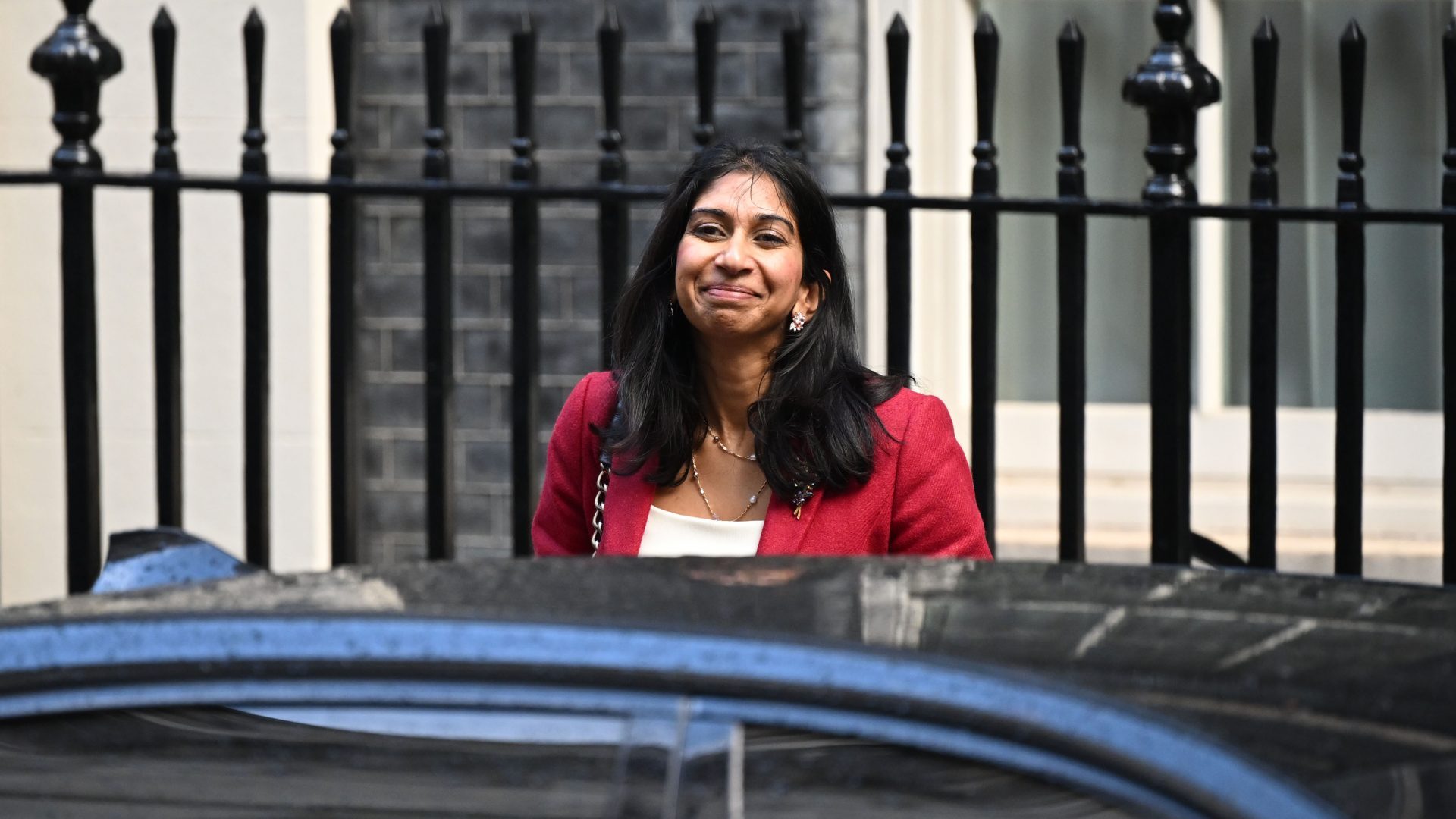Rishi Sunak has now reached the point that he was always going to reach, the inevitable, political singularity that resides on the Brexit event horizon.
Sunak has edged towards a settlement with the EU over the Northern Ireland Protocol, that piece of legislation setting out the terms of trade between Britain, Northern Ireland and the EU. But he has known, all the while, that a significant, angry and very loud section of his party will not buy what he has to sell them.
And so we are back on resignation-watch. Various members of the Sunak cabinet might be preparing to hit the ejector button over the issue of the Protocol: who’s in the running?
1.) Suella Braverman, Home Secretary
Braverman’s gripe is that the PM wants to throw out legislation that allows the UK to override its Brexit deal with the EU. Boris Johnson, the disgraced former Telegraph columnist, was recently quoted in the press as warning Sunak not to chuck the bill, or else. Braverman went on the BBC arguing the case for retaining it, saying it was vital for Britain’s arrangements with Northern Ireland.
Braverman, has form when it comes to leaving the Home Office – she was Home Secretary under Liz Truss, who sacked her after five weeks for breaching the ministerial code.
2.) Dominic Raab, Sec of State for Justice
Raab, also Deputy Prime Minister, has always been a hardened pro-Brexiter. The thing that makes his position so remarkable is how at odds it is with the constituency he represents. Raab’s majority in Esher and Walton is currently 2,743, which was down by 9.3 percentage points on the previous election. In contrast, his nearest challenger, the Lib Dem candidate Monica Harding, increased her vote share by 27 percentage points.
That failure to represent the political character of his constituents is a reflection of Raab’s notoriously inflexible character and fondness for binary judgements, one that has not made him many friends among the civil servants who work for him. If he doesn’t like Sunak’s deal, then he might well jump ship. But if he were to do so, it’s not certain his constituents would be very impressed.
3.) Chris Heaton-Harris, Secretary of State for Northern Ireland
A former Conservative MEP and chair of the European Research Group, Heaton-Harris is embedded deep in discussions with the EU. A former ERG member, Heaton-Harris represents a strain of political thought that is both anti-European and strongly pro-DUP. Jacob Rees Mogg has said there can be no deal unless the DUP – the Northern Irish unionist, loyalist party – is happy. Bernard Jenkin, another ERG member, has suggested that any trade border should not be between mainland Britain and Northern Ireland, but between Northern Ireland and the Republic, a view perhaps lacking in historical sensitivity.
These are the voices that Heaton-Harris will have in his ear. If the ERG and the DUP do not like Sunak’s eventual deal, and the Prime Minister plans to force it through the Commons using Labour votes, then Heaton-Harris may well go.
4.) Steve Baker, Minister of State for Northern Ireland
Like Heaton-Harris, Baker is a former chair of the ERG and subject to the same political pressures. Baker attended an ERG meeting earlier this week, where there was worried talk of a government “sell-out”. It was clever of Sunak to put the self-styled “hard man of Brexit” into the thick of the most difficult Brexit problem of all. The question though, is whether Baker might simply have had enough.
Before politics, Baker worked at Lehman Brothers, the brokerage firm whose collapse in September 2008 nearly sank the global economy. Having entered politics, Baker was opposed to gay marriage, a fight he lost, and then urged Britain to vote for Brexit, which has turned into a disaster. With a professional record like that behind him, and having spent the last few months trying to reconcile Brexit with the politics of Northern Ireland, he might well be tempted to jack it all in.











